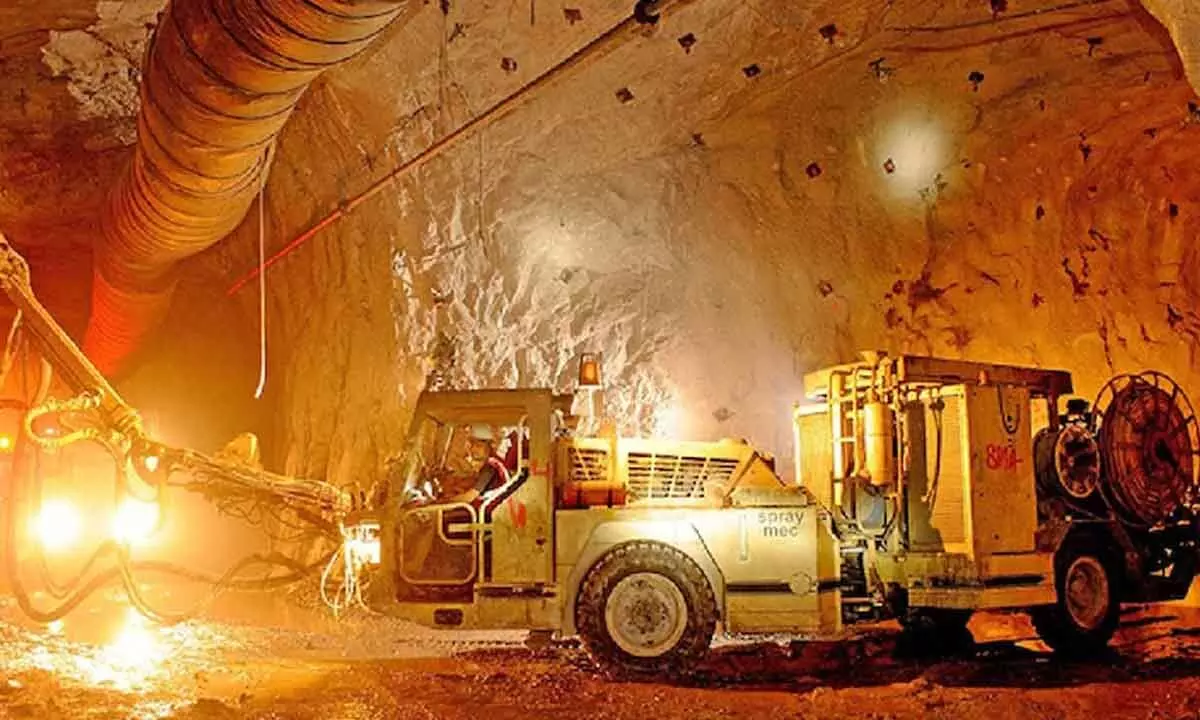CBI books case against disinvestment of Hindustan Zinc Ltd
It’s a big lesson for government against privatisation: NCOA
image for illustrative purpose

Visakhapatnam: The registration of case by the Central Bureau of Investigation (CBI) against disinvestment of Hindustan Zinc Limited (HZL), almost 20 years after its majority stake was sold to a private company, on the orders of the Supreme Court in response to a petition filed by National Confederation of Officers' Associations (NCOA) has come as a big setback to the decision of the NDA Government to pursue disinvestment of public sector units vigorously.
The Union Government miserably failed to realise disinvestment target of Rs1.75 crore set for 2020-21. It was later modified to Rs 78,000 crore due to the pandemic and other factors. However, it could realise around Rs 13,000 crore. The government has set a soft target of Rs 65,000 crore in the budget for 2022-23, which experts say it can realise only through partial privatisation of Life Insurance Corporation of India.
The government has already identified 11 central public sector units for disinvestment under the aegis of Department of Investment and Public Asset Management (DIPAM), which is under the Ministry of Finance. The identified units include a scheduled bank and a general insurance company.
In a significant development which may impact the speed to pursue aggressive disinvestment agenda, the government informed the apex court on Friday that a case has been booked after the decision to withdraw it against disinvestment of HZL was rejected. The court asked the government to submit a status report after summer vacation.
"The development should be treated as a big lesson and eyeopener for the government," NCOA chief patron K Ashok Rao told Bizz Buzz when his opinion was sought on the development. He said from the beginning they have been telling from rooftop that it was a fraud to sell away HZL, identified as a strategic public sector unit, to a private company. He also alleged that the valuation was made much below the actual rate.
The government had contended that the premier investigation agency submitted to the apex court an incomplete report and hence sought recall/modification of its order. The court had also rejected the DIPAM's viewpoint against filing a regular case.
HZL, which also owned Zinc Smelter in Visakhapatnam, which was subsequently closed, ceased to be a public sector after majority shareholding of 69.5 per cent was acquired by Vedanta Ltd (erstwhile Sesa Sterlite Ltd) during NDA rule in 2003. The government in 2014 wanted to mobilise at least Rs15,000 crore (latest reports put value at Rs 40,000 crore) by selling residual stake in HZL and BALCO. The Government had defended the decision on selling away residual stake through global competitive bidding and contended that false allegations made by the employees' unions would adversely dent their mission on disinvestment.
Ashok Rao said the apex court had clearly ruled that no case can be withdrawn without detailed probe into the serious irregularities, as pointed out by them, in the disinvestment of HZL. He also time was not an issue to punish those who went ahead with disinvestment of HZL against national interest and sought punishment to all those who are responsible for bulldozing public opinion against privatisation.
Katam SS Chandra Rao, member of NCOA and former joint secretary of Steel Employees' Federation of India (SEFI), said the Government of India may consider RINL merger with SAIL instead of stake sale in view of the latest order by the Supreme Court in the HZL disinvestment case.
"After the Ukraine war there is a lot of demand for steel in the international markets. Hence, one strong PSU is required to meet domestic demand and to meet demand for exports. Due to new policy for expansion of Railways, National Highways and ambitious missions like the Prime Minister's Gatishakti, Sagarmala and Bharatmala, the steel requirement is going up. Offer of subsidies and low interest rate have increased the demand for steel in the domestic market thereby necessitating rethinking on strategic sale of steel PSUs," he pointed out.

